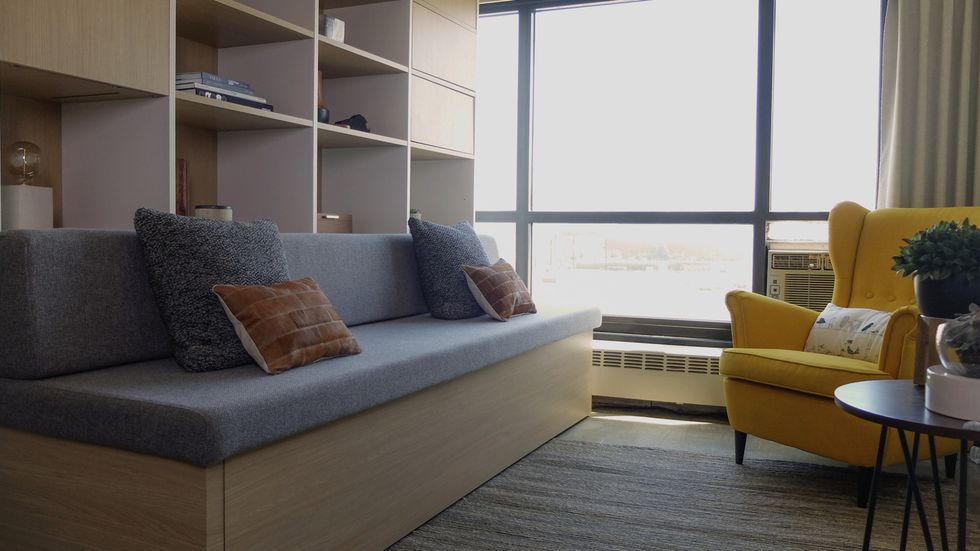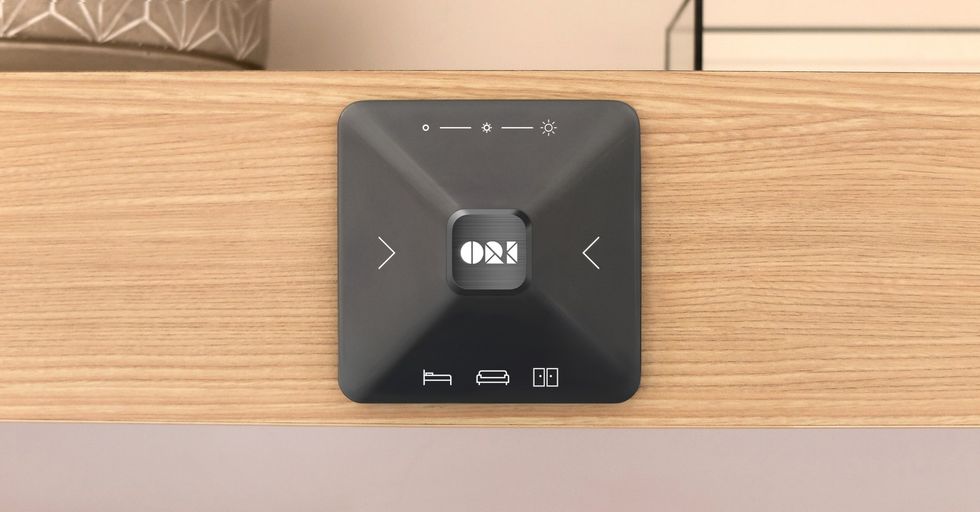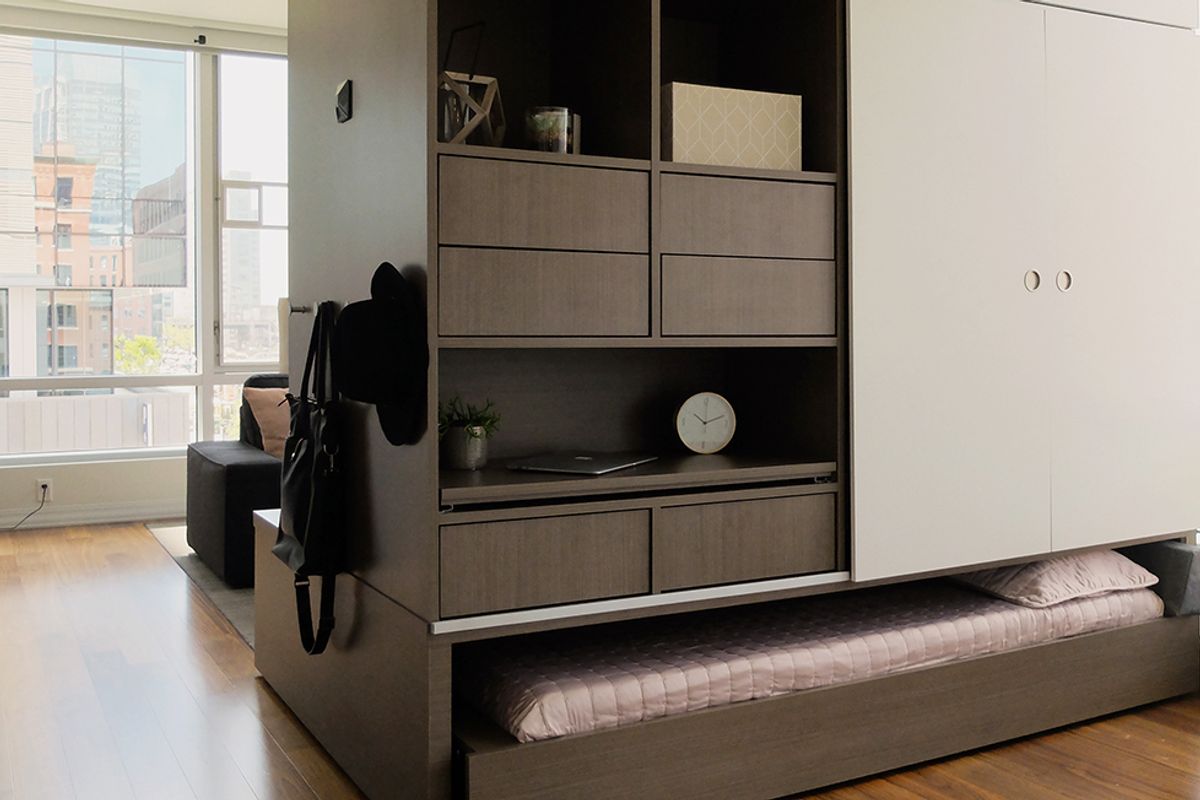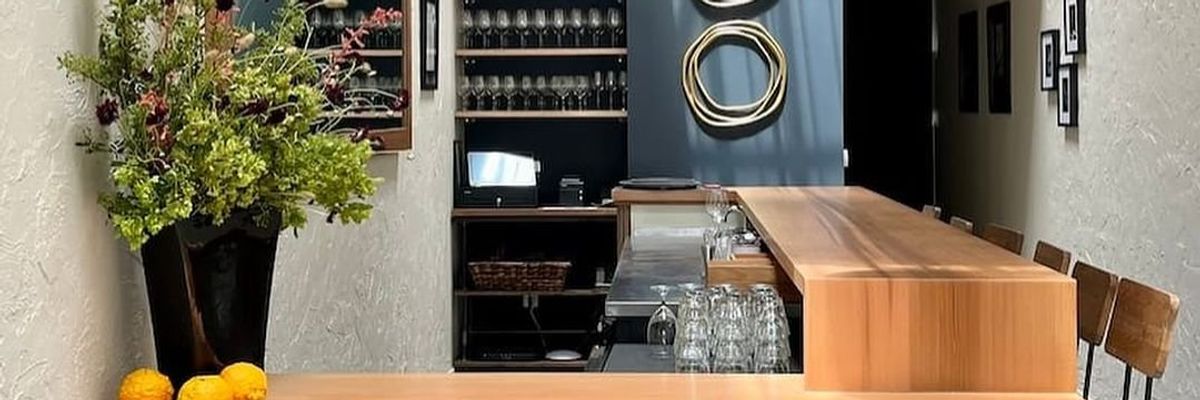Ori is taking the tiny home movement to a whole new level. A startup born out of a MIT Media Lab project, Ori thinks furniture should be able to change form and function with one tap from your smartphone. And the company hired Yves Béhar to make it happen.
The finished product is a 200-square-feet, multitasking and multi-functional box which contains a full bed, closet, sofa, storage space, and a full media console/credenza for the living room. Controlled by your smartphone, a simple push of a button can transform the look of your tiny home based on your needs. Like origami (where the company derived their name), Ori can fold or unfold its many functions with a simple touch.

Ori got its start as a project at the MIT Media Lab. With the rise of micro apartments in New York, San Francisco, and other cities, five students in the Changing Places research group designed CityHome—essentially an entire apartment in a robotic box. The prototype was a finalist in the 2014 Innovation by Design Awards. Also behind the project is San Francisco-based stellar designer Yves Behar, founder of fuseproject, who was hired to take the initial prototype and turn it into a marketable design.
Ori is now made from wood to match the finishes more commonly found in homes. Within the unit—which is about the size of a large closet—there's a bed, closet, drawers, workstation, and ample storage. There are sensors embedded throughout to make sure that the bed doesn't slide in when someone's sleeping or move in the path of someone standing.

The goal of the system is to change the way in which people live in small spaces, giving them the freedom and the tools to transform a studio in a one-bedroom apartment and adapt it to their daily activities. Ori is expected to hit the consumer market in early 2017.





















